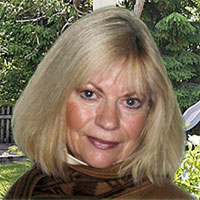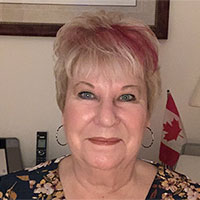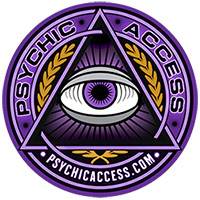 Have you ever realized that when you’re truly engrossed in what you’re doing, it feels as if there’s an incredible energy stream or current pushing you forward?
Have you ever realized that when you’re truly engrossed in what you’re doing, it feels as if there’s an incredible energy stream or current pushing you forward?
In these enchanting instances, it seems as though the universe is in sync with you, perfectly aligning circumstances, people, and chances in your favor.
Wouldn’t it be wonderful to live this way all the time? Envision a life where every choice you make feels unequivocally correct, where your inner compass is so finely tuned to your truth that self-doubt is hardly a factor.
Regrettably, we often find ourselves preoccupied with the opinions of others, or we opt for practicality—the path more commonly traveled. We succumb to the influence of external judgments instead of attuning to and heeding our own inner guidance.
The anxiety surrounding rejection or failure frequently looms large, anchoring us to a ‘safe’ yet uninspiring route. We convince ourselves that heeding our soul’s calling is more of an indulgence than a necessity.
Listening to your inner truth isn’t selfish. Following the current of what resonates with you doesn’t equate to neglecting your obligations. Rather, it symbolizes making choices that feel right for your soul, moment by moment.
Society inundates us daily with expectations and our families with definitions of what’s appropriate and acceptable, yet how often do we pause for a self-assessment? How frequently do we question ourselves, “Is this truly what I desire?” rather than “Is this what I’m expected to want?”
Pay attention to your own voice, your own soul; too many individuals heed the clamor of the world instead of their own essence ~ Leon Brown
Why We Fail to Hear Our Inner Voice
Many factors contribute to our inability to heed our inner voice or follow what resonates with us. A primary reason is the fear of judgment. Societal expectations and others’ opinions can weigh heavily, causing us to question our intuition. We may fear that embracing our inner voice will render us selfish, reckless, or disconnected, and this worry can silence our soul’s messages.
Also, the clamor of contemporary life makes it challenging to connect with our inner selves. Our inner wisdom gets overshadowed by the tumult of daily existence. With continuous distractions from technology, work, and social commitments, it becomes easy to overlook the quiet moments that allow introspection and connection with our innermost being. In this storm of external noise, our inner voice often gets lost.
Moreover, there’s a tendency to doubt our instincts. We frequently question whether our inner voice is dependable or logical, particularly when it diverges from common sense or leads us down uncertain paths. This self-doubt can compel us to prioritize rationality, external guidance, or societal conventions over our own truths.
Additionally, following our gut feelings often demands bravery and vulnerability. It may prompt us to take chances, venture out of our comfort zones, or make tough choices. This can seem intimidating, leading us to select the safer, more familiar path, even if it misaligns with our authentic selves.
Many of our profound fears, I believe, also originate from past life experiences and crises. These entrenched fears influence our current lives, often unbeknownst to us. In this lifetime, we are meant to rise above many of these foundational fears that unconsciously dictate our behavior and decisions.
For instance, if you faced some form of abandonment in a prior life, you may make choices in this one that prioritize the needs of others over your own. You might hesitate to pursue what is genuinely true for you mainly due to the fear of losing relationships.
The irony is that when you honor what’s right for you, the right individuals will typically gravitate towards you while the unsuitable ones phase out. Though this may feel intimidating, upon reflection, it’s far more unsettling to lead a life devoid of genuine joy, one governed by the necessity of pleasing others rather than fulfilling your soul’s desire.
Your intellect comprehends only a few things. Your inner voice, your intuition, comprehends all. If you heed your instinctual knowledge, it will invariably guide you down the right route ~ Henry Winkler
Learning to Trust Your Inner Truth
Ultimately, ignoring our inner voice can leave us feeling isolated or ungratified. Learning to trust and validate it requires practice, patience, and self-kindness. By doing so, we unlock a life aligned with our true essence.
When I mention doing what “feels right” for us, there are various methods to practice this. Imagine you have two job offers, but you’re uncertain which one to accept. One position pays higher and seems to promise advancement. Yet, when you connect with your intuition, you feel a constricted sensation around your abdomen, akin to a belt pulling tighter. Your mind might be enthusiastic about this job due to the financial stability it offers, but your body’s signals express a different narrative.
Your body serves as a wise compass in this journey. It communicates through sensations, emotions, and subtle energetic shifts. If something resonates as a “yes,” contemplating it will bring forth a sense of peace, lightness, or happiness for no particular reason.
Conversely, if happiness feels intertwined with anxiety—almost as if being drawn by temptation—then it may not be the optimal choice. Recognizing the difference between authentic alignment and temporary thrill is crucial.
Check in with your body. Engage in dialogues with it. Your body possesses its own wisdom and intrinsic intelligence. When your mind agrees, but your body disagrees, it’s essential to listen carefully and trust your instincts. The body often perceives before the mind comprehends!
I know what’s best for me, and I choose to do things my way. Now, I heed my inner voice and my heart – this is how I make my decisions ~ Nina Hagen
Carving Out Time for Self-Reflection
We all have obligations, be it caring for loved ones, working extensive hours, pursuing education, and engaging in social commitments. Regardless of how intense your schedule is, it’s vital to allocate time for yourself.
Prioritizing spiritual self-care doesn’t necessitate drastic alterations to your daily life; manageable and purposeful steps can have a substantial impact. Here are some practical methods to secure “me time” amid your busy life:
Rise a bit earlier: Beginning your day just 15 to 30 minutes sooner opens a calm period for activities you enjoy—whether it’s reading, meditating, or relishing your coffee in silence. Alternatively, streamlining your daily habits can create additional personal time. If it seems there’s no spare time in your day, reflect on how much might be wasted on mindless social media browsing.
Disconnect from technology: Set aside time to distance yourself from digital distractions. This practice can help you remain present and create mental space for relaxation or creativity.
Learn to decline: It’s perfectly fine to refuse engagements that don’t resonate with your priorities. Establishing boundaries can help prevent overcommitting and free up time for pursuits that genuinely matter, including your own well-being.
Organize and prioritize: Use a calendar or planner to schedule time explicitly for yourself. Treat this time as a vital appointment you cannot overlook. By scheduling it, you enhance your likelihood of honoring it.
Merge activities: Seek chances to combine self-care with other obligations. For example, consider listening to an uplifting podcast while commuting or practicing mindfulness during a stroll.
Delegate tasks: Share duties with others at home or in the workplace. Delegating not only lightens your burden but also allows you to focus on activities that spark joy.
Moments of mindful reflection and self-assessment enable you to reconnect with your inner wisdom. Life will always have its imperfections, yet the more you align with what genuinely resonates with your soul, the more you nurture a flow that opens spiritual avenues. These changes typically surface subtly—through intuition, insight, and energy—before becoming tangible in reality.
This flow represents your soul’s ultimate alignment. It is a sacred rhythm that courses through you and directs you to your true path. Adhering to it doesn’t signify a life devoid of challenges, but it ensures that you will tackle those challenges with greater ease and clarity. As you embrace your inner guidance, expect to witness synchronicities—being in the right place at the right time, encountering individuals who uplift and inspire you, and feeling an underlying sense of ease even in trying moments.
Picture yourself standing on the shore, observing the waves rise and fall. If you resist the tide and combat the natural rhythm of the water, you drain your energy. However, if you surrender and flow with it, you’ll realize that the ocean itself supports you. Life functions similarly. Resisting what your soul knows to be true breeds struggle, while surrendering to your inner wisdom allows you to proceed effortlessly.
Perhaps the most profound lesson here is trust. Trust in yourself. Trust that the universe is working in your favor. Trust that as you make decisions that align with your deepest truths, the path will unfold in ways you never could have orchestrated alone. The more you practice attuning to and following what feels right, the stronger this trust will grow.
Practice tuning into your intuition, your inner voice; pose questions; nurture curiosity; perceive what you perceive; hear what you hear; then take action based on what you know to be true. These intuitive gifts were granted to your soul at birth ~ Clarissa Pinkola Estés
Strategies for Inner Clarity & Alignment
So, how can you start incorporating this into your daily life? Begin with small steps. Throughout the day, take moments to pause and check in with yourself. Before making a choice, take a deep breath and observe how your body reacts. If something feels light and expansive, it likely aligns with your highest good. Conversely, if it feels confining or heavy, reassess.
Spend time in nature. The natural environment mirrors divine flow. Notice how trees flourish without force or how rivers navigate their course seamlessly. Nature doesn’t impose; it simply abides by its own wisdom. You possess this wisdom within you as well.
Meditation and journaling are also potent tools. Pose the question, “What feels true for me in this moment?” and allow the answer to surface naturally. Over time, this practice will become second nature.
Ultimately, the more you align with your truth, the more vibrant and satisfying your life will be. You were never meant to live in a state of perpetual compromise. Your soul came here to experience joy, growth, and profound connection.
Your ancestors, guides, and angels support you as you embrace your authentic self. The spirit and divine watch over you as you navigate this path. And the universe will provide for you as you trust and follow your divine purpose and inner truth.
By honoring what is genuine for you, you unlock a life of infinite possibilities, where every moment is infused with meaning, purpose, and grace. Therefore, trust yourself, follow the flow, and let your soul guide the journey.
|
 About The Author: Isadora About The Author: Isadora
Known as The Psychic’s Psychic, since 1998, Isadora has been providing readings for thousands worldwide, her notable clients include individuals from the Obama administration, Fortune 500 CEOs, and distinguished names from Hollywood. Her remarkable (Gemini) accuracy is truly astounding, with her capability to see individuals at the Soul Level and address a wide range of inquiries, from relationship dynamics to business decisions and past life questions—any subject requiring clear insights. She has the knack for identifying hidden patterns underneath your current situation, offering you insights to positively alter your future. If you’d like a reading with this compassionate, straightforward, laser-focused, and committed Psychic, you can find Isadora at PsychicAccess.com.
|
How to Foster Trust in Your Inner Truth
In our contemporary, fast-paced, and often turbulent world, finding the way through the noise to uncover our authentic selves can be quite demanding. We are inundated with external influences, societal pressures, and other people’s opinions, which can obscure our judgment and make it hard to trust our inner truth. Nevertheless, cultivating trust in our inner truth is essential for personal growth, fulfillment, and leading a life true to ourselves. Here are some effective approaches to assist you in developing this trust.
1. Foster self-awareness: Cultivating trust in your inner truth begins with self-awareness. Allocate time to reflect on your thoughts, feelings, and principles. Contemplate what truly holds significance for you and what resonates with your core beliefs. By gaining a deeper understanding of yourself, you can differentiate between external influences and your authentic desires.
2. Engage in mindfulness: Mindfulness serves as an effective method to connect with your inner truth. Participate in activities that enhance mindfulness, such as yoga, meditation, or journaling. These practices quiet the mind and make space for your inner voice to emerge. By staying present in the moment, you can attune to your intuition and deepen your connection with your inner truth.
3. Tune into your body: Our bodies often provide essential insights regarding our inner truth. Notice physical sensations like tension, discomfort, or relaxation. These feelings can signify whether a particular decision or situation aligns with your inner truth. Trusting your gut instincts and physical cues can steer you toward choices that resonate with your authentic self.
4. Embrace vulnerability: Trusting your inner truth entails embracing vulnerability. It involves being open to the possibility of errors, facing criticism, or encountering discomfort. Accepting vulnerability empowers you to take risks and follow your unique path, even when it may not be widely accepted. Remember, your inner truth is exclusively yours, and it is vital to honor and believe in it, irrespective of external judgments.
5. Seek solitude: Spending time in isolation is vital for building trust in your inner truth. Solitude allows you to disconnect from external influences and listen to your thoughts and feelings. Engage in activities that bring you joy and enable you to reflect without interruptions. Whether it involves walking in nature, reading, or simply enjoying silence, solitude can assist in reconnecting with your inner voice and solidifying your sense of self.
6. Surround yourself with supportive individuals: Creating a community of supportive people who appreciate and encourage your inner truth is crucial. Seek out friends, mentors, or support groups that resonate with your values and beliefs. Being in the company of like-minded individuals offers validation and encouragement, making it simpler to trust your inner truth.
7. Take gradual steps: Developing trust in your inner truth is an ongoing journey requiring time and practice. Begin by making minor decisions rooted in your intuition and inner wisdom. Witnessing positive outcomes from trusting your inner voice will bolster your confidence, making it easier to tackle larger decisions that resonate with your authentic self.
Always bear in mind that nurturing trust in your inner truth is a lifelong endeavor. It necessitates patience, kindness towards yourself, and a commitment to self-exploration. By fostering self-awareness, practicing mindfulness, embracing vulnerability, seeking solitude, surrounding yourself with supportive individuals, and taking gradual steps, you can cultivate an enduring trust in your inner truth. Trusting yourself is the gateway to a rewarding and genuine life. Continue reading →



















